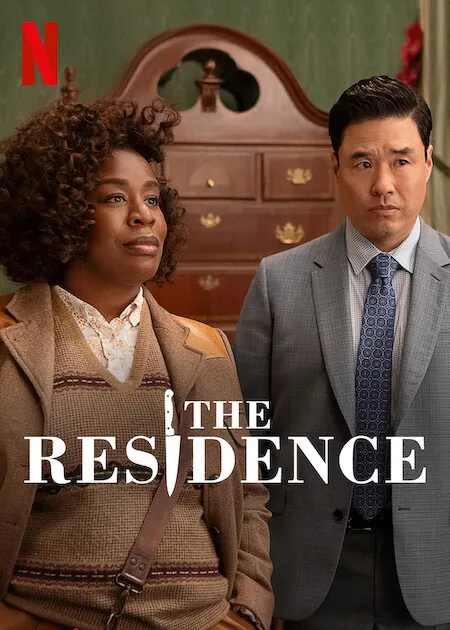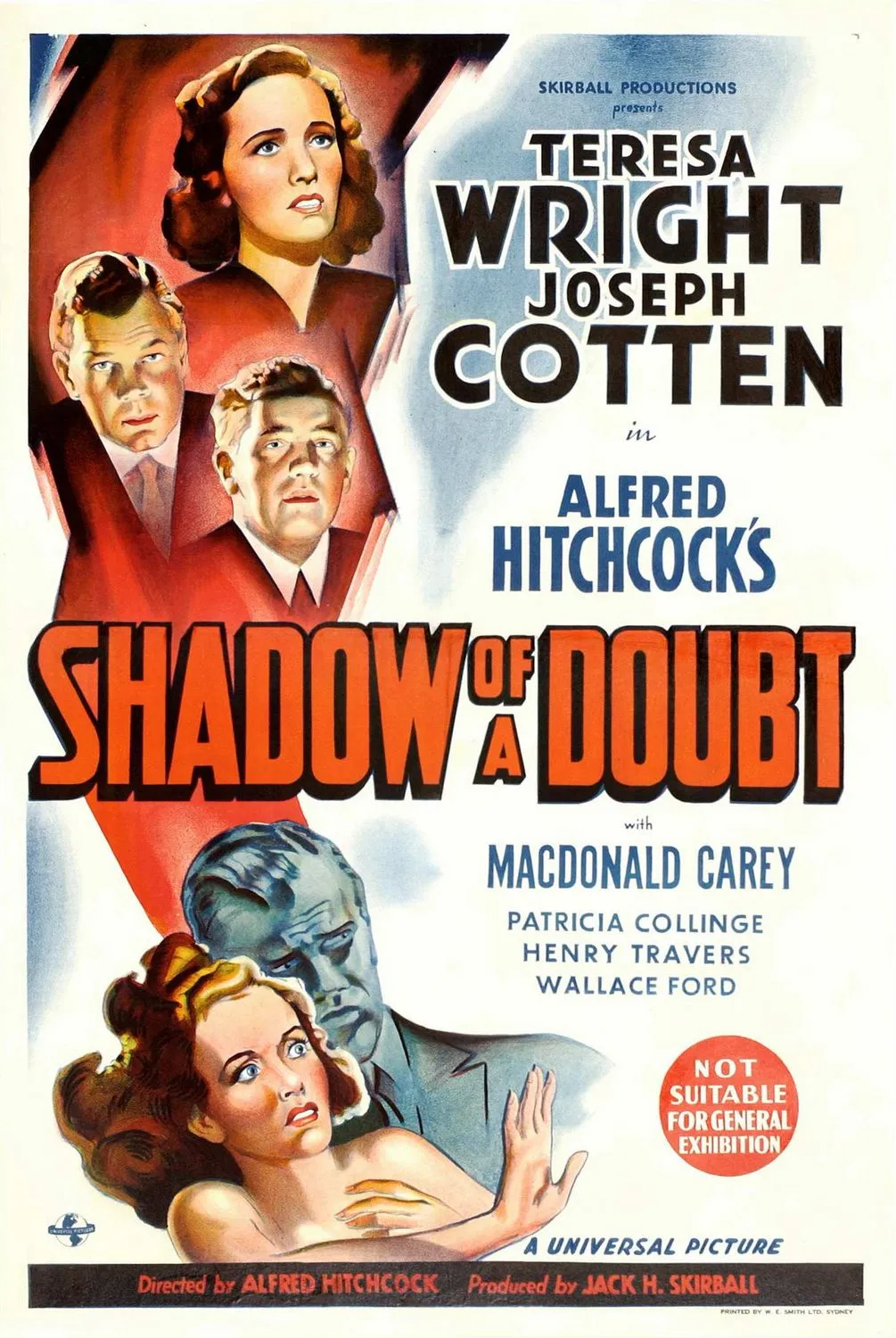If Les Grossman Negotiated with Hans Gruber (youtube.com)
Featuring several seasoned negotiators listening in on the master class.
Featuring several seasoned negotiators listening in on the master class.
So you might think, why bother solving this problem? Why not work on some big problem that we know is important?
But I think that misses the point. What if the Goldbach Conjecture, turns out it is opening up a whole new part of the multiverse of mathematical ideas. We don’t really know 'cause we don’t have the bird’s eye view, or the God’s eye view, of math. […] So, I tend to dislike this picture of certain things are central and other things are peripheral.
People should do what fires them up. Because if you do that, you’ll be passionate, you’ll think about it all the time. You’ll do it when you’re in the shower. You’ll think about it when you’re driving. And you might do something remarkable because of that passion. And if you’re just doing something 'cause you think it’s important, I think you’ll tend to be second rate, honestly.
I like the modest view that we don’t know what’s necessarily important, but we do know what we love. So work on that.
Looks lovely. $9.99 on the App Store, one-time purchase, sort of: you purchase up to a year of feature updates.
Good old-school fun. I miss being able to theme OS X. How much fun is this? I hope Apple doesn’t bork whatever makes this work.
Forget where I saw this illustration but I love it and had a lovely time drawing some versions of it myself, experimenting with various shadings.

It’s from a book called Géologie by Marcel Oria, published by Hatier press in 1958. This is what its cover looks like.
This is one of many adaptations of the classic tragedy by Euripedes. I highly recommend this treatment1 to anyone as a first appreciation.
And it’s quite the story: love, lust, betrayal, spirituality, filicide, redemption, wisdom, general chicanery, geopolitics, racism. The artwork is fantastic and hypnotic2.
In a thousand years, I’ve heard of hundreds of wars and massacres, most of which have been forgotten. An evil force is at work in the world, a terrible law that requires the weak, the dreamers, and the gentle souls to disappear to benefit the powerful. In the end, there will be nothing left but a hardened, greedy race, drunk on the power it has acquired over the centuries. An iron-fisted race, a thousand times more violent than it is today. And I’m glad to know I won’t be here to see it.
I mean… silly stories, right?





Saw with the family. Well-produced and mostly predictable. Nice to see actors who’re at and outside the edge of nepotism for a change. Nani is fantastic and steals the show. Got to listen to music Amit Trivedi might have knocked out over a single trip to the restroom.
“I don’t think you’re a killer. You seem like the kind of guy who’d willingly donate blood to a mosquito.”
and
“I don’t have a good feeling about him. He’s overcompensating like a Telugu movie comedian in his debut film. Tap his phone and have him tailed.”
I love these drawings by Matt Decker. I saw a an entire sheet of them at the Minneapolis-Saint Paul International Airport (the artist’s from Rochester) and am glad to note they’re available through his Etsy page. They’re all giclée fine art prints, signed by the artist.
Here are a few favorites. Three dames and two very Minnesotan bros.

No.12 - “Tufted Titmouse with Cloche”

No.10 - “House Wren with Fancy Hat”

No.18 - “American Robin with Floppy Hat”

No.24 - “Common Loon with Flap Cap”

No.16 - “Cardinal with Stocking Cap”
AUSTIN, TX—Stressing that the billionaire’s completely erratic behavior had strained the already fraught relationships, sources confirmed Thursday that a rift was widening between Elon Musk and anyone who had ever met him. “Elon’s megalomania and tendency to lash out indiscriminately seem to have soured things with every person he’s encountered in his entire life,” said an anonymous source close to the embattled tech mogul, adding that Musk’s staunch refusal to engage in self-reflection or address his many off-putting personal tics had so far estranged him from the White House, his business partners, his neighbors, the mothers of his children, the children themselves, interviewers, investors, restaurant waitstaff, and all others who had directly interacted with him in any manner for any length of time. “These acquaintances are making every effort to distance themselves from Elon, whom they have come to see as a liability and a hindrance to their goals. Even those who have only briefly dealt with him over social media say they no longer wish to be associated. It’s obviously a bad look to have blown up every last one of his interpersonal connections, but knowing Elon, that’ll only make him dig in his heels and make things even worse.” The source added that while the acrimony between Musk and everyone he had ever met was likely irreversible, the falling out had only strengthened his relationship with ketamine.
These are our idols. What a world.
Written in Python. Not sure where I’d use them. Reminded me of Charm.
Read these two articles on the OpenAI and Jony Ive collab. Smelled some familiar bullshit first and felt some déjà vu next.
Altman told employees that they had “the chance to do the biggest thing we’ve ever done as a company here,” he said after announcing OpenAI’s plans to purchase Ive’s startup, named io, and give him an expansive creative and design role.
Thought the biggest thing you set out to do was Artificial General Super Intelligence (for the benefit of all humankind, of course).
Anyway. Ive’s company has a “staff of roughly 55 engineers, scientists, researchers, physicists and product development specialists” (source) who appear to be experimenting furiously with what to make, for this is what we’re told the thing will do:
The product will be capable of being fully aware of a user’s surroundings and life, will be unobtrusive, able to rest in one’s pocket or on one’s desk, and would be a third core device a person would put on their desk after a MacBook Pro and an iPhone.
The Wall Street Journal earlier reported that the device won’t be a phone, and that Ive and Altman’s intent is to help wean users off of screens. Altman said the device also isn’t a pair of glasses, and that Ive had been skeptical about building something to wear on the body.
Sounds like a sleeker version of this flaming piece of shit daring foray into the future of artificial intelligence and human-computer interaction:

Marques Brownlee thought it was “Barely Reviewable”. I do like how it looks though.
Can’t wait for the Ive video introducing it. And he wouldn’t be the first ex-Apple person with too much money who had an idea on how to transform our relationship with our computers. Altman invested in that disaster too.
But I’m a know-nothing curmedgeon and it’s certainly possible that this will be an unalloyed success in the hands of these wizened titans of industry (even if Uber-Curmudgeon Ed Zitron doesn’t think so.) I wish the happy couple the very best of luck 💝
Written in Swift. Last update was in 2020. There’s also WebAMP, whose Skin Gallery puts a smile on my face.
Because The Unarchiver now shows fucking ads.

Yes, I am complaining about a free thing. I have zero problem paying for the application and/or for the ads to go away. We drown in enough shit as it is. Does make me think why I need a separate unarchiver… perhaps for RAR files?
Like many others, I saw the movie first. Good stuff, Natalie Portman is great and Hugo Weaving is fantastic even behind a mask. This novel is not like the movie. Length and character depth aside, it’s very British in its setting, sensibilities, and its response to its time (in the movie, I do remember wondering what Bush-era excesses had to with a fascist state in the UK). It is also is much darker than its film adaptation.
I think the claim is that anarchy, which Moore defines as a state of being without leaders but not without order, is the only effective resistance to runaway fascism.
He explores a lot of the latter’s properties: It happens slowly, then suddenly. It metastasizes slowly with both the apathy and consent of a majority. And when it’s here, it’s too late; all resistance (other than anarchy of course) is merely symbolic.
There were riots, and people with guns. Nobody knew what was going on. Everyone was waiting for the government to do something. But there wasn’t any government anymore. Just lots of little gangs, all trying to take over. And then in 1992, somebody finally did. It was all the fascist groups, the right-wingers. They’d all got together with some of the big corporations that had survived. ‘Norsefire’ they called themselves. I remember when they marched into London. They had a flag with their symbol on. Everyone was cheering. I thought they were scary.
They soon got things under control. But then they started taking people away. All the black people and the Pakistanis… White people, too. All the radicals and the men who, you know, liked other men. The homosexuals. I don’t know what they did with them all.
Now because there is no firm philosophical center to fascism other than outgroup hate and appeals to some glorious, prosperous, and fictitious age of yore1, it will collapse and destroy everyone involved, including the usual prey of minorities and immigrants and other People Not Like Us.
Moore gives space to almost every character to illustrate this. Like the average person, whether or not they’re True Believers:
Dad had been in a socialist group when he was younger. They came for him one September morning in 1993. It was my birthday. I was twelve. I never saw him again.
They made me go and work in a factory with a lot of other kids. We were putting matches into boxes2. I lived in a hostel. It was cold and dirty and I just used to cry all the time. I wanted my dad.
Or the bourgeois Top 9.99%3, including a few aspiring token minorities who consider themselves the ‘Right People’, who surrender any prior conviction, morality, and common decency to self-aggrandizement (or preservation).
Derek, when we married, you remember, I was working at the bank and you were in insurance. We were going to buy a house in Surrey, perhaps have children that was in '87 just before the war. And then, in '92, you joined the Party.
Mrs. Rana next door loaned us food all through the war years. When they dragged her and her children off in separate vans we didn’t intervene.
And now you’re dead and I walk home alone each night through riot zones, past lootings, shootings, burning buildings… Now you’re dead and I crouch like an animal and offer my hind-quarters in submission to the world. Now you’re dead and I can’t sleep for being scared; for crying, hating; thinking ‘Who has done this to me?’ I can’t sleep for wanting justice, wanting all the world to know of its unfairness.
But all this cannot happen at this point in (the end of) history. Alarmist hogwash. Zero contemporary parallels. There is no oligarchic capture of democratic institutions. Wealth inequality is at an all-time low. Unchecked globalization was a raring success. Billionaires need more tax breaks and we are obliged to feel proud when unfettered Capitalism creates the first Trillionaire. The ongoing privatization or outright elimination of public institutions and goods and services will cure the most unfortunate amongst us of their moral and spiritual failings. All xenophobic and economic nationalist movements like Brexit were triumphs of sovereignty and self-determination.
Social Media companies must exercise their Free Speech rights by absolving themselves of all ethical responsibility to moderate their platforms (“Corporations are People, my Friend”). Think of the shareholders and the executives and their famished households. Climate Change is natural, hence does not require interventions (what would God think?), and will not result in mass humanitarian and allied migration crises. Survival of the Fittest bro, where’s your bunker (or Mars Colony) invite? Taxation and regulation are for communists. Empathy is weakness. Up is down. East is West. Wrong is Right.
So yeah. No way any of this is building up to anything. Stop listening to hysterical candyasses. It’s not as bad as it seems4. This book is a work of fiction written by a crazy disheveled anarchist and augurs nothing. Relax. Like and subscribe, sign up for my newsletter, buy my coin, and pay for my course on disruptive innovation, bro.
V is portrayed to be very intelligent, well-read and cultured, and an expert planner and strategist. No disagreement here. But Lord is he annoying when he opens his damn mouth. Here’s his reply when Evie asks a perfectly simple “You’re almost finished aren’t you?”
See for yourself. The pieces are set out before me, perfectly aligned. Complete, one may at last grasp their design, their grand significance. But ‘almost finished’? Yes. Yes, I suppose I am.
Though recognition’s been delayed by its circuitous construction, now the pattern, long concealed emerges into view. Is it not fine? Is it not simple and elegant and severe? How strange, after the long exacting toil of preparation that it takes only the slightest effort and less thought to start this brief, elaborate amusement on its breathless, hurtling race: The merest touch, no more… and everything falls into place. The pieces can’t perceive as we the mischief their arrangement tempts: those stolid, law-abiding queues, so pregnant with catastrophe, insensible before the wave so soon released by callous fate. Affected most, they understand the least…
And understanding, when it comes, invariably arrives too late. Indeed they’ll not know anything’s amiss until they’re caught up in that terrible momentum, possibly mistaking it at first for bold decisive action, some last minute rally to avert disaster, charging to the rescue…
But they are not charging. They are falling. There… Poor little things. You see them? Standing with their numbers on their blank, indifferent faces. Nuremberg in miniature. The ranks of painted wooden men… Poor dominoes. Down it goes. Your pretty empire took so long to build. Now, with a snap of history’s fingers… down it goes.
Took me two and a half passes to get through that thicket. More of a yes or no question, Vincenzo. And pray how is the poor girl supposed to react to that edgelord logorrhea? “Uh… word.”
And that’s just a sample. It’s not enough that he literally tortures her: almost every simple thing she enquires of him leads her to a linguistic hostage situation. There’s no direct answer to anything asked of him, presumably to show that he’s some posthuman “4D Chess” level above the rest. He kept reminding me of a few good-hearted assholes I knew in college, over the age of twenty mind you, who texted and sometimes spoke like this for no fucking reason.
ME: “Hey you want a beer?”
ELLIOT: “Unequivocally. Chilled ferments shall slake my thirst and refresh my frayed cognitive apparatus. You have both my company and gratitude this evening, sir.”
ME: “Word.”
Great book though. I’m sure I’ll read it again. Looking forward to reading something happier.
“Why build a better future when you can write a better past?”↩︎
Kids need to know how much fun it is to assemble iPhones or work at a meat-packing plant for 15 hours a day. Builds worker-units character.↩︎
I consider the remainder the ruling class. I imagine you get to “Owners of the World” past 0.01%.↩︎
Have you considered Strongly-Worded Letters?↩︎
This reading comes from the resource Facing History and Ourselves: Holocaust and Human Behavior.
In the introduction to Rescuers: Portraits of Moral Courage in the Holocaust, writer Cynthia Ozick states,
Indifference is not so much a gesture of looking away — of choosing to be passive — as it is an active disinclination to feel. Indifference shuts down the humane, and does it deliberately, with all the strength deliberateness demands. Indifference is as determined — and as forcefully muscular — as any blow. Indifference to past suffering is a sure sign that there will be indifference to present suffering.
Throughout the reading “No Time to Think,” the slow, incremental, yet willful choice to not act, to become a bystander and to remain indifferent is revealed. Ozick reminds us that the bystander—the one who does not take part in any evil act directly, but turns away —is still a participant. “the act of turning away, however empty-handed and harmlessly, remains nevertheless an act.”
Milton Mayer, an American college professor, wanted to find out how ordinary people reacted to Hitler’s policies and philosophy. Seven years after the war, he interviewed German men from a cross-section of society. One of them, a college professor, told Mayer how he responded.
[My] Middle High German was my life. It was all I cared about. I was a scholar, a specialist. Then, suddenly, I was plunged into all the new activity, as the university was drawn into the new situation; meetings, conferences, interviews, ceremonies, and, above all, papers to be filled out, reports, bibliographies, lists, questionnaires. And on top of that were demands in the community, the things in which one had to, was “expected to” participate that had not been there or had not been important before. It was all rigamarole, of course, but it consumed all one’s energies, coming on top of the work one really wanted to do. You can see how easy it was, then, not to think about fundamental things. One had no time.
…The dictatorship, and the whole process of its coming into being, was above all diverting. It provided an excuse not to think for people who did not want to think anyway. I do not speak of your “little men,” your baker and so on; I speak of my colleagues and myself, learned men, mind you. Most of us did not want to think about fundamental things and never had. There was no need to. Nazism gave us some dreadful, fundamental things to think about – we were decent people – and kept us so busy with continuous changes and “crises” and so fascinated, yes, fascinated, by the machinations of the “national enemies,” without and within, that we had no time to think about these dreadful things that were growing, little by little, all around us. Unconsciously, I suppose we were grateful. Who wants to think.
One doesn’t see exactly where or how to move. Believe me, this is true. Each act, each occasion, is worse than the last, but only a little worse. You wait for the next and the next. You wait for one great shocking occasion, thinking that others, when such a shock comes, will join with you in resisting somehow. You don’t want to act, or even talk alone; you don’t want to “go out of your way to make trouble.” Why not? – Well, you are not in the habit of doing it. And it is not just fear, fear of standing alone, which restrains you; it is also genuine uncertainty.
Uncertainty is a very important factor, and, instead of decreasing as time goes on, it grows. Outside, in the streets, in the general community, “everyone” is happy. One hears no protest, and certainly sees none. You know, in France or Italy there would be slogans against the government painted on walls and fences; in Germany, outside the great cities, perhaps, there is not even this. In the university community, in your own community, you speak privately to your colleagues, some of whom certainly feel as you do; but what do they say? They say, “It’s not so bad” or “You’re seeing things” or “You’re an alarmist.”
And you are an alarmist. You are saying that this must lead to this, and you can’t prove it. These are the beginnings; yes; but how do you know for sure when you don’t know the end, and how do you know, or even surmise, the end? On the one hand, your enemies, the law, the regime, the Party, intimidate you. On the other, your colleagues pooh-pooh you as pessimistic or even neurotic. You are left with your close friends, who are, naturally, people who have always thought as you have.
But your friends are fewer now. Some have drifted off somewhere or submerged themselves in their work. You no longer see as many as you did at meetings or gatherings. Informal groups become smaller; attendance drops off in little organizations, and the organizations themselves wither. Now, in small gatherings of your older friends, you feel that you are talking to yourselves, that you are isolated from the reality of things. This weakens your confidence still further and serves as a further deterrent to – to what? It is clearer all the time that, if you are going to do anything, you must make an occasion to do it, and then you are obviously a troublemaker. So you wait, and you wait.
But the one great shocking occasion, when tens or hundreds of thousands will join with you, never comes. That’s the difficulty. If the last and worst act of the whole regime had come immediately after the first and smallest, thousands, yes millions, would have been sufficiently shocked – if, let us say, the gassing of the Jews in '43 had come immediately after the “German Firm” stickers on the windows of non-Jewish shops in '33. But of course this isn’t the way it happens. In between come all the hundreds of little steps, some of them imperceptible, each of them preparing you not to be shocked by the next. Step C is not so much worse than Step B, and, if you did not make a stand at Step B, why should you at Step C? And so on to Step D.
And one day, too late, your principles, if you were ever sensible of them, all rush in upon you. The burden of self deception has grown too heavy, and some minor incident, in my case my little boy, hardly more than a baby, saying “Jew swine,” collapses it all at once, and you see that everything, everything, has changed and changed completely under your nose. The world you live in – your nation, your people – is not the world you were born in at all. The forms are all there, all untouched, all reassuring, the houses, the shops, the jobs, the mealtimes, the visits, the concerts, the cinema, the holidays. But the spirit, which you never noticed because you made the lifelong mistake of identifying it with the forms, is changed. Now you live in a world of hate and fear, and the people who hate and fear do not even know it themselves; when everyone is transformed, no one is transformed. Now you live in a system which rules without responsibility even to God. The system itself could not have intended this in the beginning, but in order to sustain itself it was compelled to go all the way.
You have gone almost all the way yourself. Life is a continuing process, a flow, not a succession of acts and events at all. It has flowed to a new level, carrying you with it, without any effort on your part. On this new level you live, you have been living more comfortably every day, with new morals, new principles. You have accepted things you would not have accepted five years ago, a year ago, things that your father, even in Germany, could not have imagined.
Suddenly it all comes down, all at once. You see what you are, what you have done, or, more accurately, what you haven’t done (for that was all that was required of most of us: that we do nothing). You remember those early meetings of your department in the university when, if one had stood, others would have stood, perhaps, but no one stood. A small matter, a matter of hiring this man or that, and you hired this one rather than that. You remember everything now, and your heart breaks. Too late. You are compromised beyond repair.
¹ Milton Mayer, They Thought They Were Free, 177-181
Why did the professor obey? What factors led to his decision? How did he evaluate that decision nearly twenty years later? How do you evaluate it? Why does he emphasize the small steps he took? How do each of those small steps make it easier to take no action at all?
Draw an identity chart for the professor. What aspects of his identity may have influenced the
decisions he made in 1933? How do you think life in a world dominated by fear affected the choices
he made?
Reread Peter Drucker’s decision (Reading 8). Compare it to those described in this reading. Does an individual have the responsibility to take a stand? When? Under what circumstances?
How might “thinking” have made a difference in the professor’s decisions? At what point did the
state take on so much power or the person give up so much power that human qualities were suppressed in the name of patriotism? Is it possible to think too much? Can thinking too much
paralyze one’s responses?
Hiroshi Yoshida (1876 - 1950) was a renowned painter and printmaker who traveled far and wide. These are a few from his 32-panel “India and Southeast Asia” series. I found myself staring at each for a long while and am absolutely in love1.














“Ni lerdo, Ni Perezoso”
My co-worker from Argentina shared this idiom after another delivered some delightful Friday Value™. It means “neither slow nor lazy” and is commonly used to describe people who attend to a situation quickly, decisively, and sometimes unexpectedly, with no hesitation.
No math/equations. Just clear and concise overviews of topics. Made as a video to fall asleep to!

I’d say things are going pretty well.
A three-hour rundown of the game’s mythology from the 1992 Mortal Kombat to 2023’s Mortal Kombat 1 by ClementJ64. For a more extensive historical overview that doesn’t get into the mythology, there’s Ian Scherer’s excellent “The History of Mortal Kombat”1. Lots of dedicated research in both videos for a beloved thirty year-old franchise.
And there’s no “Game of Thrones”-level storytelling or world-building here. It’s a fighting video game where the characters’ abilities matter more than their stories or relationships. It’s fairly cogent but they do make things up as needed from one title to the next and every fan adjusts accordingly and is A-OK with the good fun of it all2. The only thing of importance to me is whether Sub-Zero and Scorpion are bros or sworn enemies across successive titles.
I didn’t think of the resources the game devs saved by giving us a nice rainbow palette of ninja-clones3 and this makes total sense. At least in the Good Old Days, color replacements and eleventh-hour backstories were cheaper than the space and memory required for brand new characters.

L-R: Scorpion, Sub-Zero, Noob Saibot, Smoke, Reptile, Ermac, Rain (Source)
It’s an old and ingenious trick and I love it.

Sprite reuse in Super Mario Bros (Source)
My cousin introduced me to the very first title and I was hooked. My dad bought us Mortal Kombat 3 for the PC at GITEX and I still remember my amazement and excitement. My sister and I spent a lot of time playing it (my favorites were Sub-Zero and Sektor and hers Sonya Blade, Sheeva, and Scorpion). Good times 🥋 And there was, of course, the absolutely legendary soundtrack.
My favorite memory is when we learned that there was a secret character (Smoke the Ninja) that we couldn’t unlock. My sister and I wrote a letter to Midway, to their address on the box (it was in the UK iirc), asking for help. A month later, a full guide showed up with happy notes from a few people. What a gesture; I wish I still had this most lovely document. We were beside ourselves with excitement but I wish we wrote a thank you letter.
Should I need to duel my sister after twenty-four years, there’s Mortal Kombat+, which is a set of enhancements and bugfixes to the original trio of games. Fight!
Which ends with a very touching reminiscence and dedication 🙏↩︎
Here’s a great example. “A counter for ERMACS (short for error macros) on the game’s audits screen was additionally interpreted by players as referring to a second hidden character named Ermac. Midway denied the character’s existence in the series before adding him to Ultimate Mortal Kombat 3 in response to the player rumors and feedback.” (Wikipedia).
So they add him to the game and make him “a fusion of the many souls destroyed in Outworld’s wars, only to be controlled by Emperor Shao Kahn and his Shadow Priests. Because of this, he refers to himself as ‘we’, ‘our’, ‘us’, and ‘ours’, instead of ‘I’, ‘my’ ‘me’, and ‘mine’. Because of the sheer concentration of souls within Ermac, he possesses the gifts of telekinesis, teleportation, and the ability to travel between realms.” (MK Wiki)↩︎
Same deal with ninjesses Kitana, Mileena, and Jade.↩︎
Me before Japan: I don’t need to weeb out over everything. Every place has its pros and cons.
Me after Japan: unfettered corporate capitalism has ravaged the quality of life in America. I am envious of the plethora of small businesses and vendors on every block in Japan, many of which have owners who are passionate about their craft and expertise. I am envious of the quality of their foods, products, and services, even from the humblest of sources, and their pride in that quality.
And if you’re as old and uncool as I am:
Weeb is a short form of weeaboo, a term first used by users of 4chan to insult obsessive fans of Japanese culture.
But that’s not entirely accurate. There’s an important distinction.
A weeb is a person who is interested in anime and Japanese culture. There is an important difference between a weeb and a weeaboo. The latter is a person who denounced their own culture, believe they are, or want to become, Japanese, they have a waifu or body pillow if some sort and watch hentai. Weebs are normal people who like anime and may have some merch.
Not looking up “waifu”. I think enough’s enough here.
This was my first Glass Beams album. Enjoyed it without even knowing of their mesmerizing stage presence. Here’s their Bandcamp page.
Hypnotic af.
My favorite track by a mile. A most lovely pace to it. Somehow reminds me of vintage Bollywood background scores (especially the ones backing villains or chase scenes).
This is super-cool. They place a piece of Uranium Oxide in a cloud chamber and you can actually see two kinds of radioactive ‘bullets’ just flying out of the sample:

Stylish and polished spy caper from Soderbergh and Company. Not a single wasted moment: witty, engaging, lavish, taut, nothing more, nothing less. About as lean and efficient as the spies it features.
The soundtrack’s by David Holmes, a longtime collaborator (did the Oceans trilogy with him, for example). At just 28 minutes, it’s as brief and engrossing as the movie.
I did wonder how most characters managed to look ridiculously dapper and live and work in spacious and sumptuously furnished homes and offices on their government salaries.
The typeface used in the poster and titles is Aristotelica, a “rounded geometric sans” that, like all other elements (soundtrack, locations, pacing), just fits the movie as well as Pierce Brosnan’s bespoke suits.

This is yet another $JASON_STATHAM_MOVIE. He’s in construction now and a beloved foreman and leader of people (of course).
And they still won’t leave him alone.

What’s different this time: There’s this whole John Wick-style Russian criminal brotherhood involved here. I really didn’t give a shit about this setup or any character, with the exception of Andrej Kaminsky as uberboss Symon Kharchenko. He speaks softly, moves slowly, and there’s this Anton Chigur-like menace to him1.
It was needlessly long too. I’ll just wait for the next one 🙏 My bet on which sweaty and grimy blue-collar job it’ll be is Welder. A close second is Logger, and in some really, really remote place where he can use his jungle combat and tracker (and trap-setting) skills 🔥
Here’s him talking about how to deal with bullies (assuming some other character).↩︎
“I don’t like cleaning or dusting or cooking or doing dishes, or any of those things," I explained to her. “And I don’t usually do it. I find it boring, you see.”
“Everyone has to do those things,” she said.
“Rich people don’t,” I pointed out.
Juniper laughed, as she often did at things I said in those early days, but at once became quite serious.
“They miss a lot of fun,” she said. “But quite apart from that – keeping yourself clean, preparing the food you are going to eat, clearing it away afterward – that’s what life’s about, Wise Child. When people forget that, or lose touch with it, then they lose touch with other important things as well.”
“Men don’t do those things.”
"Exactly. Also, as you clean the house up, it gives you time to tidy yourself up inside – you’ll see.”
A crowdsourced list of the best trip-hop songs with each letter of the alphabet. Most popular are Massive Attack and Portishead (no surprises here). Here’s a YouTube playlist.
| Track | Artist | |
|---|---|---|
| Angel | Massive Attack | link |
| Building Steam With A Grain of Salt | DJ Shadow | link |
| Cowboys | Portishead | link |
| Destiny | Zero 7 | link |
| Eple | Röyksopp | link |
| Fear of Flying | Bowery Electric | link |
| Glory Box | Portishead | link |
| Hell Is Round The Corner | Tricky | link |
| Inertia Creeps | Massive Attack | link |
| Joga | Björk | link |
| Karmacoma | Massive Attack | link |
| La Femme D’argent | Air | link |
| Midnight In A Perfect World | DJ Shadow | link |
| Numb | Portishead | link |
| Overcome | Tricky | link |
| Protection | Massive Attack | link |
| Que Sera | Wax Tailor | link |
| Rabbit in Your Headlight | UNKLE | link |
| Sour Times | Portishead | link |
| Teardrop | Massive Attack | link |
| Underwater Love | Smoke City | link |
| Venus As a Boy | Björk | link |
| Wandering Star | Portishead | link |
| XYZ(Peel Session) | Boards of Canada | link |
| You Wish | Nightmare on Wax | link |
| Zen Approach | DJ Krush | link |
| 6 Underground | Sneaker Pimps | link |
See also: Top 10 Essential Albums as voted by the community.
Here’s a demo site (demo:demo). I was able to launch it in under 30 seconds (M2 MacBook Air, 24GiB) against a ~200GiB music library.
UX and beets integration aside, it’s essentially what I tried to build a long while ago. A simple music player (based on Rust/Golang, SQLite, and simple Web APIs) whose UI made sense to normal and reasonable people and not ambitious product managers.
Been writing bash scripts for over 15 years now. Learned a lot from this presentation. There’s also this advanced bash scripting guide I’ve referred to for a while now.
I forget who told me that Bill Watterson was coming out of retirement to write an actual book. I was giddy enough to pre-order. I finished it in about two minutes and then really read it in about five-to-ten.
The physical book itself, a hardcover, is very nicely done. Sturdy: excellent binding and high-quality glossy paper. I pick it up once in a while to meditate over the story and art.
Speaking of the art. It’s this two and many times three-dimensional clay, cardboard, Elmers glue, and paint chiarascuro that they spent a lot more time working on compared to the story. Just two artists exploring a new direction both for their individual selves and as a team, and saying no to each other but not to the motive force of the project itself.

Our collaboration wasn’t as much about compromise as it was about collision. Over and over, we hurled ourselves at each other. My detailed realism smashing into Bill’s stripped down primitivism. This dumb method created tons of debris and also flashes of lightning that could not have happened any other way […] Working through differences toward a common purpose is practically an act of defiance these days and I’m as proud of that as of any other aspect of the collaboration.
And I think that’s really what this work is. An experiment in collaboration by two very talented artists and visual storytellers. I think I’d get the same enjoyment from the book if I paid more attention to getting lost in the art and skipping every other page of text. I can see why someone would be upset by its length, however.
As for what it means, I think it’s about Nature, perhaps our blue-green home, about how much she sustains and forgives us. And we just keep taking 🤷♂️. But it’ll all be fine. The last few pages reminded me of this prophet:
The planet is fine; the people are fucked! […] The planet isn’t going anywhere; we are! We’re going away! Pack your shit, folks! We’re going away and we won’t leave much of a trace either, thank God for that. Maybe a little Styrofoam, maybe. Little Styrofoam. The planet will be here, we’ll be long gone; just another failed mutation; just another closed-end biological mistake; an evolutionary cul-de-sac. The planet will shake us off like a bad case of fleas, a surface nuisance.


The wife and I inhaled this in a day. Pizza, fizzy water, PJs, this show. It is really freaking funny in that snippy, rapidfire Armando Iannuci Veep sort of way.
Agatha Christie-type whodunnit. The genius detective, played supremely well by Uzo Aduba, is an avid bird-watcher and issues deductions (when challenged) with an enthusiasm, arrogance, and cadence that would make modern Sherlock proud. Or jealous.
Here’s Pete Holmes’ version of what I mean. If you haven’t seen this, it’s one of my favorite things as a giant fan of Doyle’s works.
Now since we’re dealing with an American show, there’s a very high likelihood that its writers will banish all editors, disable their Delete keys, and turn five episodes into eight, unlike their British peers who know how to end things on a high note. This show suffers from this problem, though not too much. I may have uttered “Oh come the fuck on” a few times during the detective’s (seemingly) 18-hour summation scene.
But this is a funny-as-hell, intriguing, and well-acted and produced mystery with plenty of twists and red herrings.
I will never forget the character of the hapless White House Calligrapher for as long as I live. Even thinking about him’s making me laugh right now. Splendid stuff.
I use the excellent Karabiner for my keyboard but this appears to be a more ‘native’ solution. Here’s a copy of the repository.
And it’s a single file! I’ve cached it here. This is a lite version of one of my favorite apps, the excellent (and surprisingly cheap) MonoDraw for macOS.
Lovely little wrappers around child_process, it looks like. I love Bun’s shell-scripting feature and am glad to note that the same elegant (eye of the beholder, leave me alone) syntax is available in Node via zx.
Saving this since I look it up at least once a year.
hm. I’ve lost a machine… literally lost. it responds to ping, it works completely, I just can’t figure out where in my apartment it is.
Enjoyed this two-part video titled “How We Measure The Cosmos” by 3Blue1Brown where ace mathematician Terry Tao explains how human beings answered the question “How far away is that thing?” over our history and at a cosmic scale. Took us a good while and, as one could predict, got faster towards the current time. Trying to answer that question also led us to discover (and only around 100 years ago!1) that our galaxy is merely one of 100-200 billion in the observable universe2.
In that video, Prof. Tao talks about how you can infer the shape of the Earth based on the shadow it casts on the moon. Some searching led me to this amazing image. This is not what happens in the sky, however. You’ll need to imagine a fern frond3 unfurling to form a nice long arc when you meditate over it:

“Earth’s Shadow” © Tom Harradine, Brisbane, Australia

(Unknown Photographer)
Well ahkchually they spotted one in 1845 but didn’t know it was outside our own galaxy so I’ll stand by my exclamation.↩︎
“The numbers are not going to change much,” Livio added, pointing out the first galaxies probably formed not too long before that. “So a number like 200 billion [galaxies] is probably it for our observable universe.”↩︎
Which are known as ‘fiddleheads’ for a reason that took me longer than permissible to understand…↩︎

From The Future World of Agriculture, published in 1984.
A lot of what’s depicted here has actually come to pass. Including that truck, a strange hybrid of a GMC Jimmy and a Corvette, that’s still cooler than a CyberTruck.

Towards the middle of this movie, I imagined Hitchcock building one of those 1/120 scale models of railroad towns1 most meticulously, and then taking sheer fiendish delight in terrorizing it with a toy Godzilla or a sandbucket avalanche.
Wasn’t too far off (surprisingly). It was his favorite movie for this sort of pleasure:
This was my father’s favourite movie, and it was because he loved bringing the menace into a small town2, into a family that had never known any bad things happen to them. They adored this uncle. They just adored him. Yet they had no idea what he is like. The whole suspense of the movie is, “When are they going to find out?”
And then there’s this exchange:
CHARLIE
Oh, what’s the matter with you two ? Do you always have to talk about killing people?HERB
We’re not talking about killing people.JOSEPH
Herb’s talking about killing me, and I’m talking about killing him.ANN
It’s your father’s way of relaxing.CHARLIE
Can’t he find some other way to relax? Can’t we have a little peace and quiet without dragging in poisons all the time?
Here’s a nice illustration of all the standard sizes. Very few ‘clean’ numbers like 1/24, 1/32, 1/48, or even 1/100. Huh.↩︎
The thick black smoke at Uncle Charlie’s arrivals is meant to be a bad portent.↩︎
This really sad article (cached) on how the author lost an older loved one to the unbelievable racket that’s Amway contains the most hopeful passages I’ve read about the current times. Emphasis and exorcism mine:
It’s hard to leave a delusion behind. In the run-up to the 2024 elections, I noticed the ways in which ****p’s political followers likewise struggled to abandon him. Some prominent ****p supporters may see him as a means to wealth or power. Others find meaning and community—or even vindication—in accepting the lies he tells. Maybe, eventually, when they see what his second administration delivers, some voters will peel away.
That’s what happened with Amway. The company is still a multibillion-dollar, global enterprise, though its domestic profile is now so much smaller that it has a page on its own website answering the question: “Does Amway still exist?” In the end, more people left than stayed. Those who came to their senses or were unable to sustain the delusion eventually quit. But things can get bleak in the middle.
This too shall pass. Let’s hope that we are all strong in what we choose to build after it does1. But it’s going to suck for a while, and for the most vulnerable amongst us. Thoughts and prayers.
If, indeed, we’re permitted to do anything.↩︎
They’re thin and delightful. 600 of them. Found them on this Floating UI component site.
A pretty comprehensive solution! I was looking for this when attempting to learn me some Bun and make a small script that would live-reload a single page (with SASS and Tailwind). And voila: a significantly better solution than the duct tapey thing I came up with 🤣